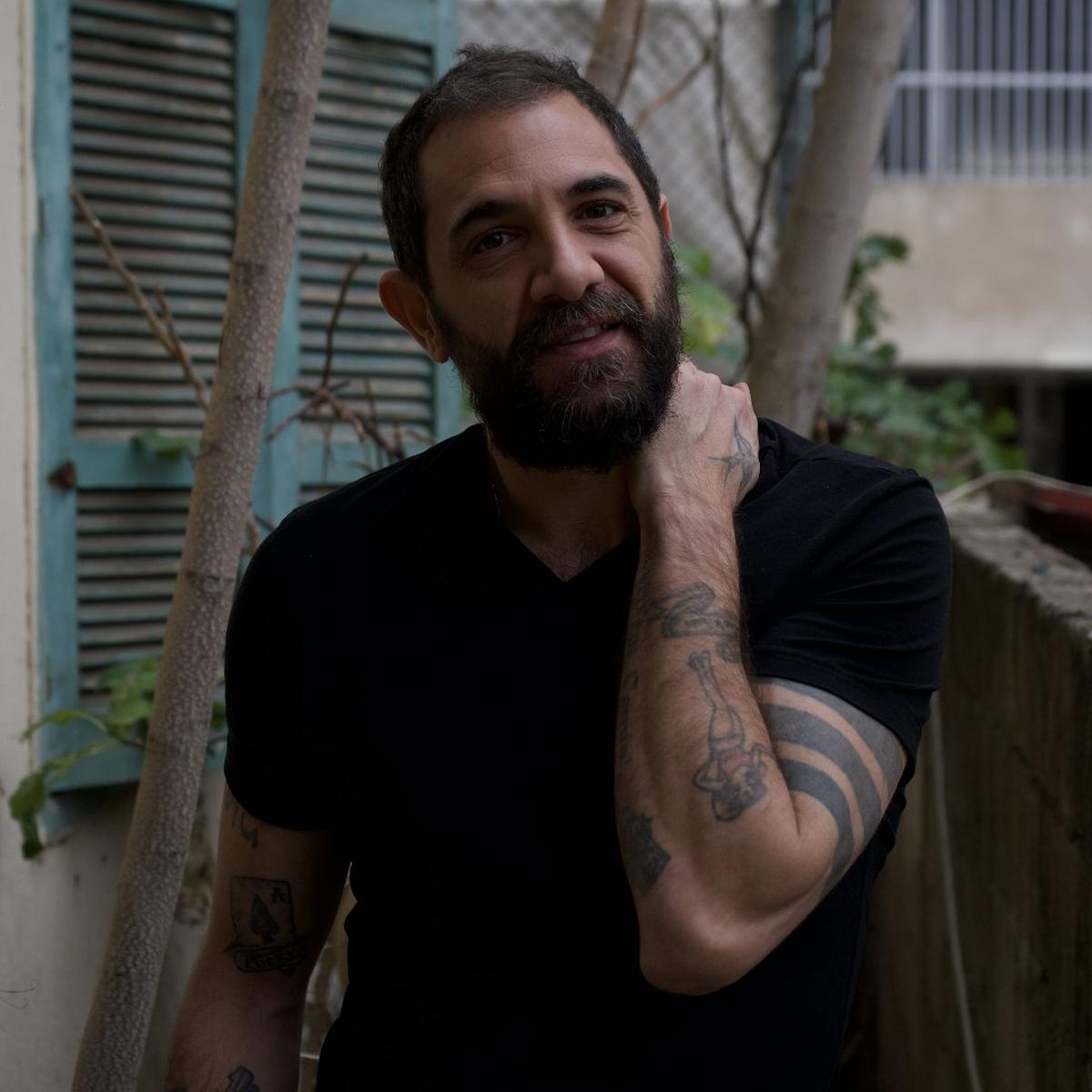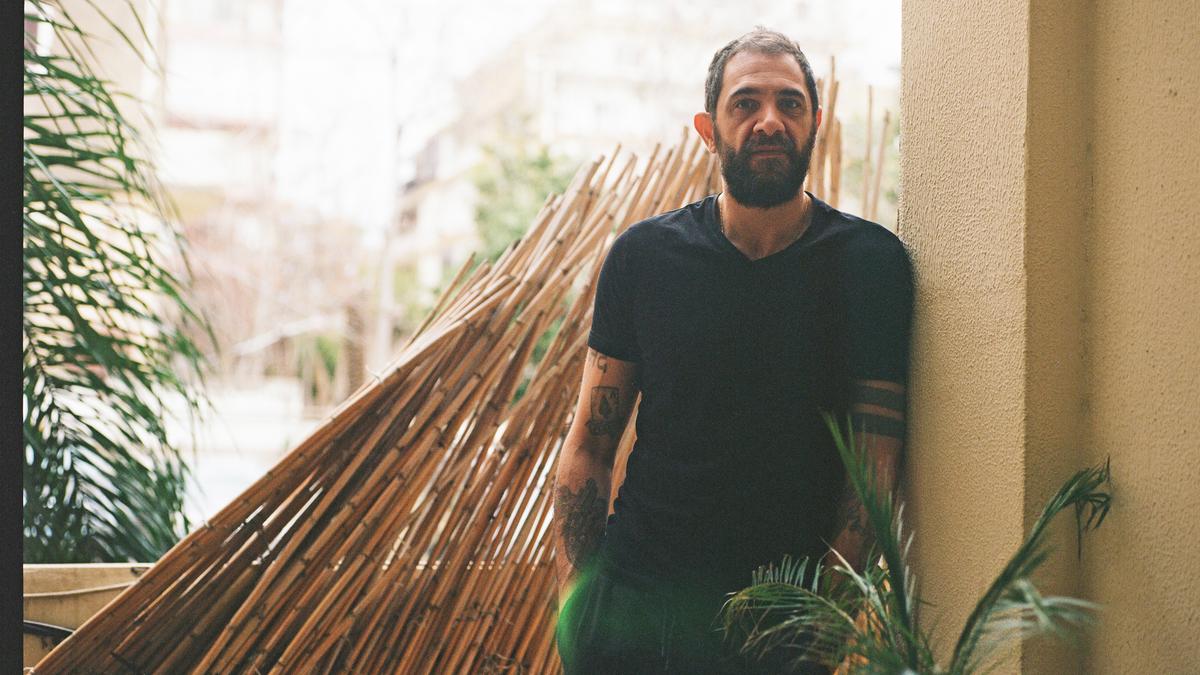While Beirut remains caught in the crosshairs of war, an indigenous band that boasts a ragtime concoction of dusty Americana and the pulse of Lebanon mirrors the city’s resilience. Led by frontman Nader Mansour and guitarist Eddie Ghossein, The Wanton Bishops were forged in the crucible of resistance, their origins laced with serendipitous beatdowns nearly a decade ago. In a city battered but unbroken, their music, much like Beirut itself, hums with the same stubborn refusal to be silenced.
In an interview conducted amid Israeli bombings of the capital and the looming threat of displacement, Nader talks about preparing for an international tour — including a stop in India at the Bandlands 2024 music festival in Bengaluru — while simultaneously bracing for the worst. As unsettling as it sounds, it feels almost fitting for a band whose journey began, where all good stories do — with a fight.
“It actually involved two fistfights,” Nader laughs. “One was Eddie [Ghossein] getting into a scuffle outside a club where I used to perform. I jumped in, and took most of the beating, as those in the middle usually do. A couple of weeks later, I found myself in another fight — completely innocent, of course — and Eddie bailed me out of jail.” And so, a bruised and battered friendship was forged — one that would soon evolve into one of Lebanon’s most dynamic musical acts.

Nader Mansour from Lebanese band, ‘The Wanton Bishops’
| Photo Credit:
X/@WantonBishops
As Nader explains it, their partnership was destined to evolve into something more than a few drunken brawls. The Wanton Bishops, despite their raucous origins, took their name from an unexpected literary source. “It’s from the Marquis de Sade,” Nader says, half-embarrassed, half-proud. “The word ‘wanton’ — it’s about violence for no reason, just pure chaos, which felt appropriate. Eddie added ‘bishops’ to strike a balance.”

The sound of The Wanton Bishops is an alchemical fusion of rootsy Delta blues and the unmistakable heart of Beirut. But to call it a balanced mix would be misleading, Nader admits. “It’s not balanced. It’s complete confusion,” he says. “It’s a fight for identity, where you know where you come from, but then the Internet opens up the entire world. I connected with the blues through that digital window, but I’m still a product of Lebanon.”
His words hang heavy, like a burden he is not sure how to carry. The band’s music, he explains, is less an effort to balance cultural influences and more a reflection of his personal identity crisis — a struggle he lets audiences witness in real-time. “It’s like a chef cooking in front of people,” he quips. The analogy sticks. What Nader and Eddie serve up on stage is raw, often unresolved, but always honest.
Honesty, Nader says, is the band’s North star. “I will never format my music for radio. I’ll never do what I think people will like. I just feel it and do it. I’m making the music I want to hear but can’t find.” It’s a philosophy that has paid off, not just in the local Beirut scene, but across international borders, as the band’s following has grown exponentially. From small clubs in Lebanon to tours in Europe, Turkey, and now India, The Wanton Bishops have carved out an impressive space for themselves, floating in the global consciousness.
And yet, despite their growing international success, there is an ever-present shadow looming over the band’s work. Beirut has seen it all, periods of ceaseless conflict, periods of blissful peace and everything in between. But right now, the city is at a standstill. “We’re doing nothing but hiding. Ready to flee at any moment,” Nader says.
This sense of fragility permeates daily life in Beirut. “I usually buy two or three cans of sardines a week. Yesterday, I bought 50. That’s a consideration that you make when you’re at war.” The stockpiling of resources and keeping his devices at maximum charge at all times, just in case, seems to be taking a toll on him. “On your nervous system, that’s not a relaxed state to be in. No one is ready all the time,” he says.

In just two weeks, over 1,030 people have perished, the dead including women and children, all casualties of a renewed conflict. Israeli attacks have forced over 200,000 people from their homes and displaced thousands more into neighbouring Syria, turning the city into a fraught liminal space between survival and devastation. “Are we resisting through music?” Nader pauses, then answers. “We resist by simply existing. Not giving up is resistance enough.”
It is a sobering reflection. Yet, despite his humility, there is no denying that The Wanton Bishops are part of a larger wave of Lebanese artistes who are making noise on the global stage, at a time when the world’s eyes are frequently on Lebanon for reasons far removed from music. “It was never deliberate,” Nader says of their international reach. “But being an export product of Lebanon, you end up carrying your country with you, whether you want to or not.” He is aware of the responsibility now. “I feel like the minister of tourism at times,” he jokes, “inviting people to come visit whenever there’s no war.”
The band’s global appeal has surprised even Nader himself. “When we got our Spotify roundup last year, I was shocked. Fifteen million people listened to our songs — that’s five times the population of Lebanon!” The geographical spread is even more astonishing. “We’ve got people in China listening to songs I wrote in bed, depressed in Beirut. That’s the power of the Internet.”
As The Wanton Bishops gear up for their performance at Bandlands 2024, Nader reminisces on their last trip to India. “We played at the NH7 Weekender and met some amazing people, including the Bangalore band Swarathma. We collaborated on a song back then, and we’re looking forward to working with them again this time.”
Before we wrapped, Nader revealed a small personal goal for this trip to India. “Last time I bought a sitar, but I never learned to play it. This time I’m hoping to find something smaller, more manageable, something I can actually master.” Spoken like a true bluesman — always searching, never quite satisfied, but savouring the journey all the same.
Beirut is burning but the Bishops’ resolve has never been brighter.
Bandlands 2024 is scheduled for November 23rd and 24th. Tickets are now available exclusively on BookMyShow.
Published – October 15, 2024 05:11 pm IST
Source link
#Wanton #Bishops #interview #Nader #Mansour #bruises #blues #Beirut
